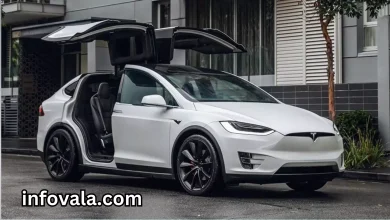Switzerland Banning Electric Vehicles why & when?
In recent years, the world has witnessed a significant shift towards electric vehicles (EVs) as nations strive to reduce their carbon footprint and combat climate change. Switzerland, known for its picturesque landscapes and commitment to environmental protection, is also grappling with the impact of transportation on the environment. As a result, there has been growing interest in understanding why Switzerland is considering banning electric vehicles and when this ban might take effect.
The Current Electric Vehicle (EV) Landscape in Switzerland
As of today, Switzerland has seen a gradual but steady rise in the adoption of electric vehicles. Although EVs account for a small percentage of the total vehicles on Swiss roads, the numbers have been steadily increasing year on year. The government and private enterprises have been actively promoting electric mobility through various incentives and policies.
Switzerland Banning Electric Vehicles Carbon Emissions and Climate Change
One of the primary reasons behind the push for sustainable transportation in Switzerland is the concern over carbon emissions. Internal combustion engine vehicles are major contributors to greenhouse gas emissions, which accelerate climate change. In alignment with global efforts to limit global warming, Switzerland is seeking ways to reduce its carbon footprint.
Switzerland Banning Electric Vehicles Climate Goals
Switzerland has set ambitious climate goals to reduce its greenhouse gas emissions drastically. These goals include a plan to achieve carbon neutrality by a certain year. In the pursuit of these goals, the country is evaluating various sectors, including transportation, and aiming to transition to cleaner alternatives like electric vehicles.
Switzerland Banning Electric Vehicles Infrastructure
Despite the growth in electric vehicle adoption, Switzerland still faces challenges related to charging infrastructure. The availability of charging stations, particularly in rural areas, remains limited. A robust and widespread charging network is crucial to support the mass adoption of electric vehicles.
Switzerland Banning Electric Vehicles Range Anxiety
Range anxiety, the fear of running out of battery without access to a charging station, is another concern. This psychological barrier hinders some consumers from fully embracing electric vehicles. Overcoming range anxiety requires both improving battery technology and expanding charging infrastructure.
Switzerland Banning Electric Vehicles Cost of EVs
Electric vehicles tend to have a higher upfront cost compared to conventional vehicles. Although the total cost of ownership may be lower over the vehicle’s lifetime due to reduced fuel and maintenance expenses, the initial investment remains a deterrent for many potential EV buyers.
Switzerland Banning Electric Vehicles Regulatory and Policy Factors
The proposal to ban electric vehicles in Switzerland is driven by various regulatory and policy factors. These factors could include the need to align with international agreements, such as the Paris Agreement, and stricter emission standards. Banning internal combustion engine vehicles is viewed as a necessary step to achieve the country’s sustainability goals.
Switzerland Banning Electric Vehicles Impact on the Economy
The ban on electric vehicles could have far-reaching implications for the Swiss economy. The automotive industry and related sectors may face significant disruptions, potentially leading to job losses. Balancing environmental concerns with economic impacts is a complex challenge for policymakers.
Switzerland Banning Electric Vehicles Concerns About Battery Waste
While electric vehicles are touted as eco-friendly alternatives, concerns about battery waste have emerged. Proper disposal and recycling of EV batteries are critical to prevent environmental harm. The ban on electric vehicles may be seen as a measure to address these concerns and promote responsible waste management.
Switzerland Banning Electric Vehicles Transition Period and Phasing Out of Combustion Engines
If the ban is implemented, there will likely be a transition period during which internal combustion engine vehicles will be gradually phased out. This approach aims to give automakers and consumers time to adapt to the changing landscape of the automotive industry.
Switzerland Banning Electric Vehicles Expected Implementation Date
The timeline for implementing the ban is subject to careful consideration. Factors such as the state of EV infrastructure, technological advancements, and economic readiness will influence the chosen date for the ban to take full effect.
Switzerland Banning Electric Vehicles Support from Environmental Groups
Environmental advocacy groups and climate activists are likely to support the ban as a significant step towards reducing emissions and protecting the environment. Their voice plays a crucial role in shaping public opinion and influencing policy decisions.
Switzerland Banning Electric Vehicles Opposition from Automotive Manufacturers
On the other hand, automotive manufacturers and industry stakeholders may voice concerns about the feasibility and economic impact of the proposed ban. The automotive industry in Switzerland may argue for alternative approaches to address environmental concerns without resorting to an outright ban.s
Switzerland Banning Electric Vehicles Investment in EV Infrastructure
To support the transition to electric vehicles, the Swiss government and private entities may invest significantly in charging infrastructure. The expansion of charging stations across the country is crucial to alleviate range anxiety and encourage EV adoption.
Switzerland Banning Electric Vehicles Incentives for EV Adoption
To encourage more people to switch to electric vehicles, policymakers might offer various incentives. These could include tax benefits, subsidies, reduced registration fees, and access to carpool lanes.
Final thought
Switzerland’s contemplation of banning electric vehicles is rooted in its commitment to environmental sustainability and reducing carbon emissions. While challenges like infrastructure and battery waste must be addressed, the proposed ban represents a bold step towards embracing cleaner and greener transportation alternatives.
FAQs
- Q: Will Switzerland’s proposed ban on electric vehicles affect existing EV owners? A: The ban, if implemented, is more likely to impact the sale of new internal combustion engine vehicles. Existing EV owners may not face any restrictions on using their vehicles.
- Q: How can Switzerland tackle the issue of range anxiety among potential EV buyers? A: By expanding the charging infrastructure network and investing in fast-charging technologies, Switzerland can address range anxiety and boost consumer confidence in electric vehicles.
- Q: What are the potential economic benefits of transitioning to electric vehicles? A: The shift to electric vehicles can stimulate growth in green technology sectors, create new job opportunities, and reduce healthcare costs associated with air pollution.
- Q: Is Switzerland the only country considering a ban on electric vehicles? A: No, several other countries have set targets for phasing out internal combustion engine vehicles, and some have already announced plans for a future ban.
- Q: How can individuals contribute to sustainable transportation in Switzerland? A: Individuals can contribute by opting for public transportation, carpooling, biking, or walking when possible and considering electric vehicles for their personal transportation needs.



